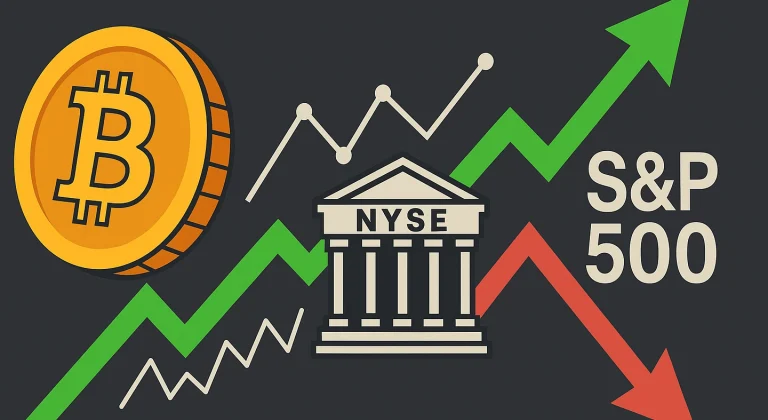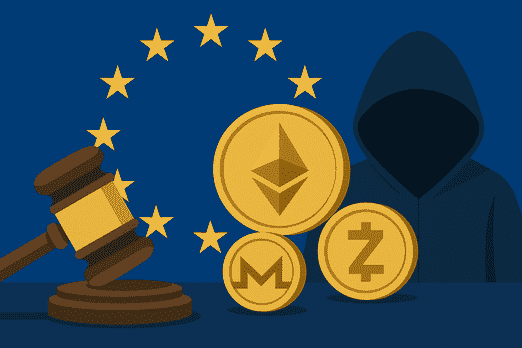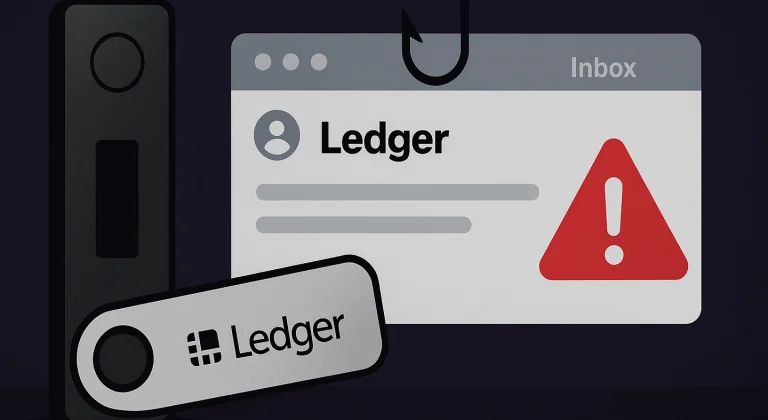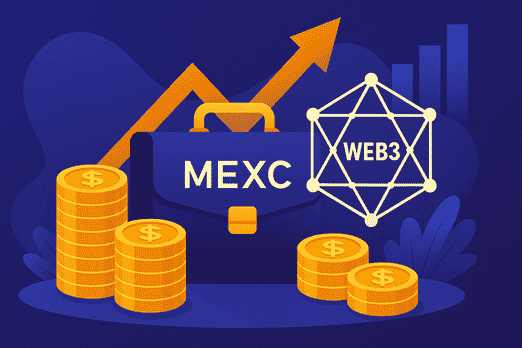The decoupling just happened, and it’s not what you think. For years, crypto diehards have been praying for that magical moment, the big decoupling, when Bitcoin would finally break free from Wall Street’s grip, riding solo, calling its own shots. No more correlation with traditional markets.
Dubai luxury properties go digital
The biggest tokenization deal in history just went down in Dubai. Three BILLION dollars. You hearing me? Not million. BILLION. With a B.
In a recession, Bitcoin will be the ultimate winner?
The elephant in the room now is the U.S. economy. It’s limping along like a wise guy after a bad night at the tables.
EU Confirms Privacy Token Ban and Anonymous Crypto Crackdown by 2027
The European Union will enforce a privacy token ban and anonymous crypto restrictions starting in 2027.
You ordered a Ledger, you got a mail… and it’s a scam
You’re in trouble. You’re minding your business, maybe sipping a coffee, when the mailman drops a letter at your door. It’s got the Ledger logo, looks official, maybe even smells like authority.
PYUSD dodges the bullets from SEC, for now
You ever get that feeling, like you’re waiting for the other shoe to drop? That’s been PayPal’s vibe for months, ever since the SEC came sniffing around their new stablecoin, PYUSD.
BlackRock now owns 600,000 Bitcoin
BlackRock’s iShares Bitcoin Trust just hit a milestone that’d make even the toughest wise guy jealous, 600,000 BTC under management.
Solana vs Sui: The L1 Blockchain battle
Solana and Sui are high-performance Layer-1 blockchains with distinct architectures impacting their market positions.
Solana’s monolithic design, leveraging Proof-of-History and Proof-of-Stake, delivers high throughput and low fees, making it a leader in DeFi and NFT markets with a mature ecosystem and institutional backing. However, reliability issues like network outages may pose challenges.
Sui’s object-centric model and parallel transaction processing offer high scalability and security, which makes it as a strong contender for gaming and Web3 applications.
Still, its newer ecosystem and smaller developer base limit its immediate impact.
While Solana holds a dominant position today, Sui’s innovative architecture and rapid growth suggest it could challenge Solana in specific niches, with both likely to coexist by serving different use cases in the evolving Layer-1 landscape.
Ryan Lee, Chief Analyst at Bitget Research
Disclosure:This article does not contain investment advice or recommendations. Every investment and trading move involves risk, and readers should conduct their own research when making a decision.
Kriptoworld.com accepts no liability for any errors in the articles or for any financial loss resulting from incorrect information.
SEC Abruptly Drops Ian Balina Crypto Case Over Unregistered Token Promotions
The U.S. Securities and Exchange Commission (SEC) has moved to drop its lawsuit against crypto YouTuber and influencer Ian Balina.
MEXC Launches $300M Web3 Fund, Focuses on Stablecoins and DeFi Projects
Crypto exchange MEXC has introduced a $300 million Web3 fund. The initiative, revealed at the Token2049 event in Dubai, will support blockchain startups over five years. The company plans to allocate around $60 million each year, depending on market conditions and available opportunities.
The fund will focus on blockchain networks, decentralized finance (DeFi) infrastructure, and stablecoin-based systems. According to MEXC Chief Operating Officer Tracy Jin, only selected projects will be considered.
“We are committed to strategic investment, focusing not just on exciting ideas and talented developers, but on initiatives with clear long-term potential,”
Jin stated at the conference.
The MEXC Web3 fund will not be open to public applications. Jin said projects must present themselves directly to MEXC’s team. The firm will not follow the traditional “submit a form and get funded” approach.
MEXC Strategic Investment to Prioritize AAA-Level Projects
MEXC said it will choose projects based on long-term viability and alignment with its goals. The company aims to support early-stage Web3 developers building core infrastructure. Public blockchains, crypto wallets, and decentralized tools are among the targets.
Tracy Jin added that the fund seeks to back teams aiming for AAA-level development status within three to five years. The emphasis is on scale and utility across the broader crypto ecosystem.
She explained that while the target is $50–60 million per year, the pace may vary. “We may accelerate the investment pace if a project aligns well with our current business priorities. Otherwise, we will proceed steadily according to the original plan,” she said.
The $300 million Web3 fund follows a trend where exchanges back infrastructure instead of offering direct listings or incentives. MEXC joins firms like Binance and Coinbase in pursuing long-term investment in crypto infrastructure.
MEXC DeFi Funding and Stablecoin Projects Take Center Stage
In February 2025, MEXC committed $20 million to USDe, a synthetic dollar developed by Ethena Labs. The company also made a $16 million direct investment in Ethena itself. These investments show MEXC’s ongoing interest in stablecoins and DeFi.
At Token2049, Jin stressed the importance of stablecoins. She said they play a key role in supporting pricing stability and trade flows across the crypto market.
MEXC’s stablecoin strategy reflects its focus on decentralized applications that enable seamless transactions. The company believes that reliable stablecoins are critical to growing the Web3 economy.
The fund’s selective investment model highlights MEXC’s focus on impactful projects. Jin said that teams must make themselves visible to receive funding. This approach avoids open calls and reduces time spent evaluating low-quality pitches.
MEXC Token2049 Dubai Announcement Highlights Selective Process
The MEXC Web3 fund announcement took place during Token2049 in Dubai on April 30, 2025. The event gathered developers, exchange executives, and blockchain founders to discuss upcoming trends.
Jin used the platform to explain why MEXC prefers a closed investment model. She said the team wants to engage only with projects that demonstrate initiative and align with MEXC’s roadmap.
As of May 1, MEXC ranks as the seventh-largest exchange by spot trading volume. According to CoinMarketCap, the platform processed over $3.2 billion in trades in the last 24 hours. The exchange operates globally and maintains a strong presence in Asian and Middle Eastern markets.
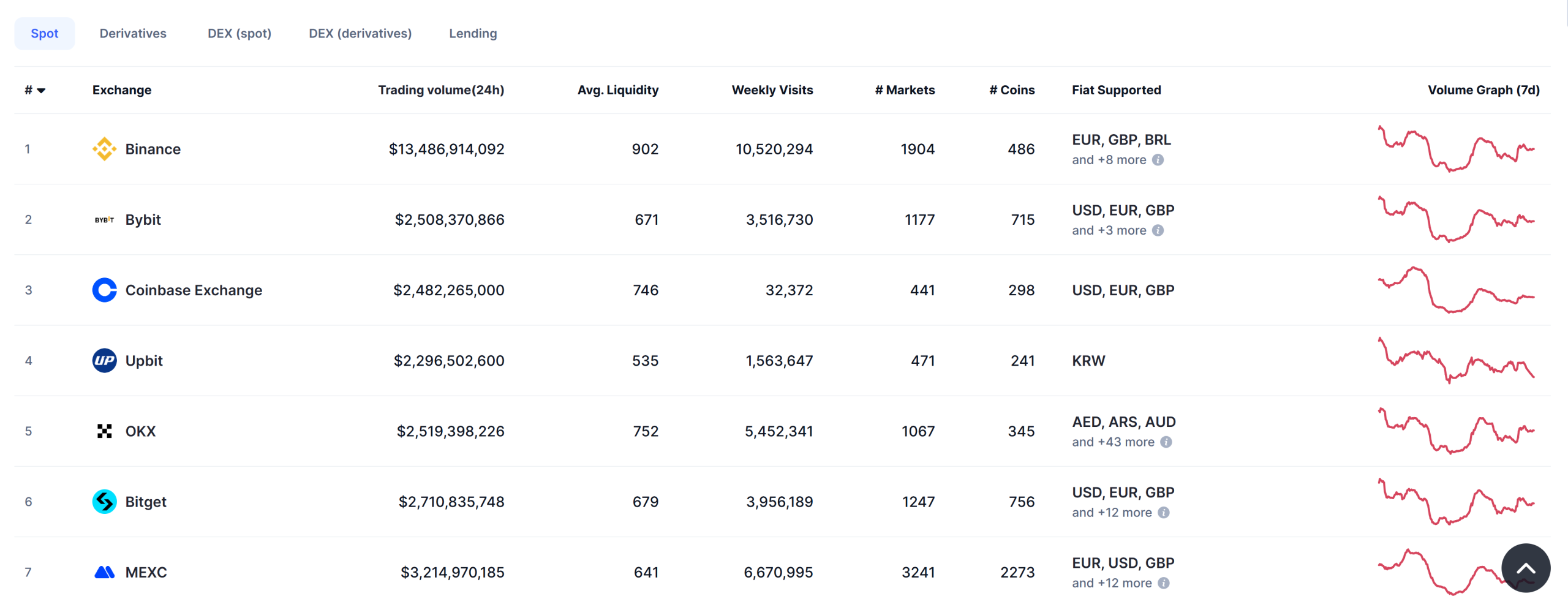
Source: CoinMarketCap
The MEXC Web3 fund adds to its existing ecosystem efforts. By supporting public chains, decentralized finance tools, and stablecoin adoption, the exchange seeks to shape the next phase of crypto infrastructure.
Disclosure:This article does not contain investment advice or recommendations. Every investment and trading move involves risk, and readers should conduct their own research when making a decision.
Kriptoworld.com accepts no liability for any errors in the articles or for any financial loss resulting from incorrect information.


